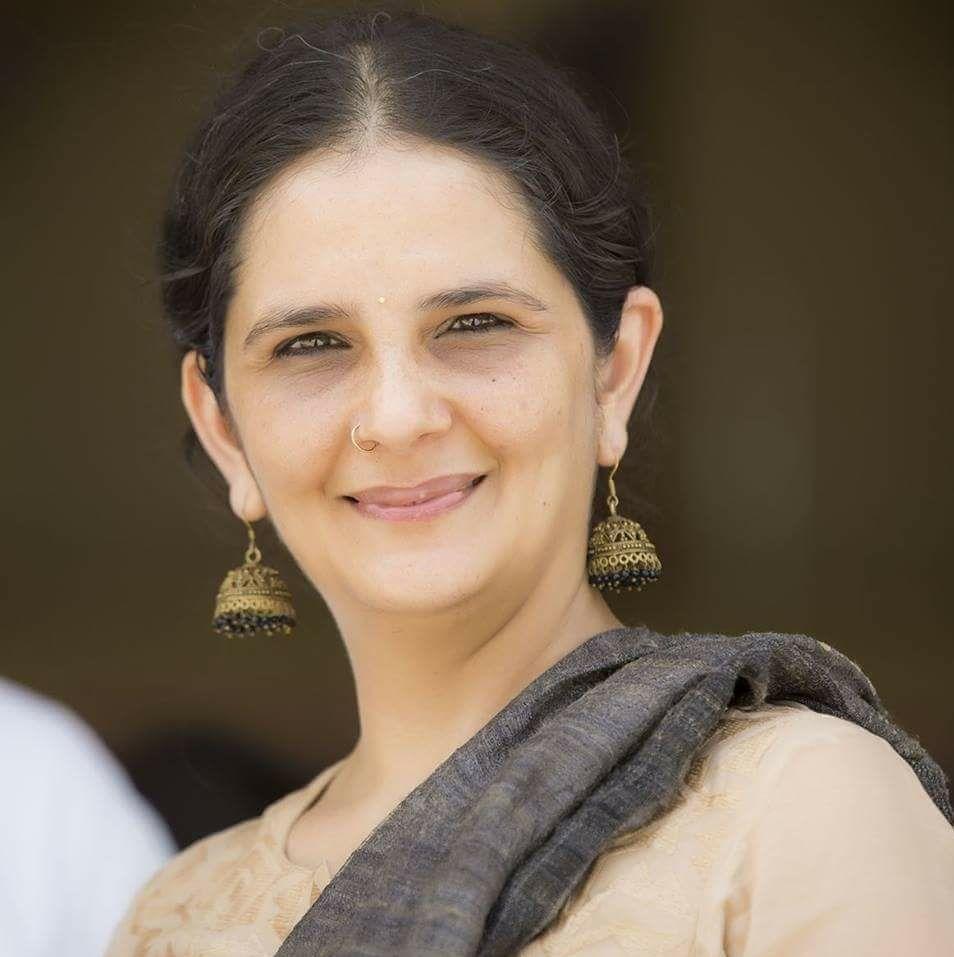Sessions Details
Anudhyāna: bhārata kī jñāna paramparāyen [Contemplation: Indian Knowledge Traditions]

Prof. Richa Chopra

Prof. Tanusree Chakraborty
pṛṣṭhabhūmi [Context]
The study of mind and behaviour has evolved under the rubric of ‘Psychology’. Although started with a focus on consciousness, it has increasingly attended more and more to the nuances of behaviour with a predominantly physical scientific lens. This positivist and anthropocentric view has led to utter neglect of the inner world, self-awareness, experiential realities and the insights from Eastern perspectives including the Indic Knowledge Systems (such as Veda, Vedānta, Sāṁkhya, Yoga, Āyurveda, Nyāya, Jyotiṣa etc.). The ignorance of these indigenous sources of knowledge and relevant insights has led to the acceptance of a lopsided view of reality causing an impoverished perspective on human potential.
The prevailing human misery and challenges in establishing a ‘just world order’ demands an expansion of the scope of psychological discourse and adopting an encompassing purview, which has space for due recognition of ‘Consciousness’ and ‘Mind’in building an enabling paradigm. Progressive expansion of the ‘Self’ is the central construct of ‘Indian Psychology’ – based on ideas and practices embedded in ancient texts such as the Upaniṣads, Bhagavadgītā, Yogasūtras, developed over thousands of years within the Indian subcontinent.
anudhyāna: bhārata kī jñāna paramparāyen - a 2.5-hour special session will permeate multiple traditions to infiltrate and to gradually weave psychological mindedness into theories of the esoteric, and bring out unique healing modalities from the ‘Orient (east) – Occident (west)’ wisdom – aimed in enhancing a multi-dimensional insight in the individual. The session will aim in exploring intersections, ruptures and continuities – towards recalibrating an understanding of the ‘human psyche’ and serve as a catalyst for thinking through change and the emergence of newer perspectives - balancing traditional ‘third-person’ perspectives with the ‘critical first-person’ perspective.
The session facilitated by distinguished scientists, humanists, artists and teachers of psychology and contemplation will be anchored on an inter and trans-disciplinary approach - amalgamating principles from the disciplines of psychology, philosophy, neuroscience, spirituality, musicology, psychiatry, astrology, performing arts and current academic conversations with modern science etc. presented in a totally secular and scientific paradigm.
The objective of the emerging narratives being to know as to how these reveals, conceal, reflect, guide or otherwise engage the audience’s contemplative potential, for exploration and honest application of psycho-contemplative principles internalised through research, rigorous study, critical self-reflection and embodied practices across all spheres of life.
The session is expected to address not only the gaps in the mainstream psychological science but help promote emotional, intellectual, social and spiritual well-being in the scholars – eventually enabling their life’s Journey towards Ātmavidyā (knowledge of Self)”.
Lastly, the Case study of the ‘1Department of Contemplative and Behavioural Sciences’ - organized around a scientific and an empirical approach, embedded within the framework of a contemplative pedagogy, for the examination of the full range of human experiences and behaviour in an effort to catalogue them, to understand their phenomenology and to comprehend their scientific basis will be revisited.
sūtradhār [Anchors]
Prof. Richa Chopra, Centre of Excellence for Indian Knowledge Systems, IIT Kharagpur (CoEIKS, IIT Kharagpur) & Prof. Tanusree Chakraborty, Department of Civil Engineering, IIT Delhi
Vaktā [Proposed Speakers]
- • Padma Bhushan Prof. Kapil Kapoor , Former Chairperson, IIAS & Former Rector, JNU | bhārata kī jñāna paramparāyen evam anudhyāna | 12 minutes + 5 Minutes of Q & A
- • Dr. Shekhar P Seṣādri, Former Dean, Behavioral Sciences Division & Former Director, NIMHANS | Mind, Mental Health and Contemplation: Western Paradigms | 12 minutes + 5 Minutes of Q & A
- • Dr. Manas Kumar Mandal, Distinguished Visiting Professor, IIT Kharagpur | Neurophenomenology and Consciousness | 12 minutes + 5 Minutes of Q & A
- • , Indian Tabla and Sitar Maestro | rāga rasa & anudhyāna | 12 minutes + 5 Minutes of Q & A
- • Pt. Sanjay Rath, jyotiṣa guru | kāla jnana | 12 minutes + 5 Minutes of Q & A
- • Deepak Khurana, Art of Living Faculty and Research Scholar, CoE-IKS, IIT Kharagpur | The Diary of a sādhak: Journey Within from Yogic Paradigms | 6 minutes + 5 Minutes of Q & A
- • SPL SESSION: Pravrājika Divyanandaprāna, Monastic Member, Sri Rāmakrishna Sārada Math | Facsimilia of Consciousness from Indian Philosophies | 25 + 5 Minutes of Q & A
Contact: